The best thing to come out of Donald Trump’s presidency for me happened on the night of his inauguration. I was sitting with seven friends in a skinny restaurant in Baltimore’s Canton neighborhood. I was drinking wine, trying to soothe my deep apprehension about what the future held.
But I was also looking back 35 years, with a certain amount of anxiety (though not as much as looking ahead gave me). My college roommate, whom I hadn’t seen in decades, was on her way from the airport to the restaurant, and I was wondering what she’d be like now. How would she mesh with my friends who had come up with me from Austin, Texas, to attend the Women’s March on Washington the following day? Why had we gone so long without seeing each other?
In 1982, Gigi Lewis and I graduated from the University of South Carolina after three-and-a-half years as roommates. There might have been a falling out at some point; I can’t be certain. Who knows what was on our 21-year-old minds? But in any case, we saw each other occasionally in the years immediately after college; however, work, children, geography (I was in Manhattan, she stayed in South Carolina) eventually separated us. The last time I saw her was at a mutual friend’s wedding 23 years ago.
Then came Facebook, which put us back in touch. I could see photos of her four children and her husband, whom I’d known in college. Then came the election of 2016, when I noticed her fabulous comments calmly skewering stupidity, sexism, and other Neanderthal tendencies. “Go Gigi,” I’d say to myself, as I hit the like button. “Amen sister,” I’d write in reply.
Read More: Why Am I So Angry? The Causes—and Surprising Benefits—of Female Rage
Disaster Hits
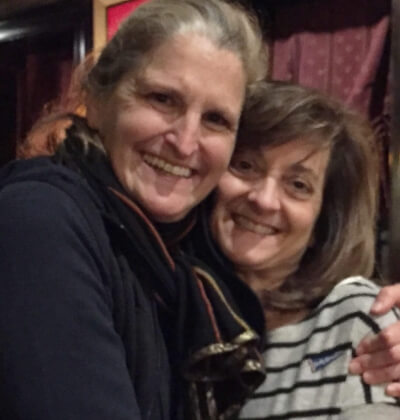
When disaster hit on November 8th, we were united in grieving via Facebook. Three days later, I made a plan to attend the Women’s March on Washington, and, knowing we were now bound in opposition to Trump, I invited Gigi along with a group of other friends.
“Yes. I’ll come,” she wrote back almost immediately via Facebook messenger. “I bet you didn’t expect that answer.”
Maybe I didn’t expect it, but I was excited. I was also impressed by her commitment. While a couple of friends I’d invited had to back out for various reasons, she remained firm, even when I told her about our accommodations for the weekend—two boathouses in a marina in Baltimore’s harbor. The boats, moored next to each other, had been the best value for our group of ten, but Gigi reported that she was scared of water (something I didn’t remember) and the idea of staying on a boat rattled her. “I’ve never been to a protest before, I hate flying, I’m scared of boats, but this is too important to miss,” she wrote me.
I heard her voice behind me. That raspy, fiery Greek voice. “I’m here! I’m here!” I looked up from the table and saw that face I knew so well, a face I’d lived across from for years of my youth. Sure, it had a few more wrinkles and some more gravity, but there she was. I sprung up and wrapped her in my arms. She is much shorter than I am, so I felt like I was smothering her. I pulled back and it hit me how much she looked like her mother, or how I remember her mother from our college days.
She sat next to me and I introduced her around the table. Others asked basic questions that I should have known—relieving me of the embarrassment of not keeping better track of her life. She worked as a lawyer in South Carolina. Three of her kids were out of college; her youngest was a sophomore at the University of South Carolina. Her husband had devoted his law practice to helping developers work through the legal logistics of renovating historic properties. I was happy to hear how well her family was doing, and I loved her honesty. Suddenly I remembered that about her. She was always honest and straight—almost to a fault. She told me about struggles she’d had with a couple of her children—not varnishing the truth—which made her kids’ success now all the more real and touching.
Toward the end of dinner, she put her hand on mine. “I can’t tell you how much this means to me,” she said. “Thank you so much for inviting me. Now let’s go and get busy!”
At the Women’s March on Washington
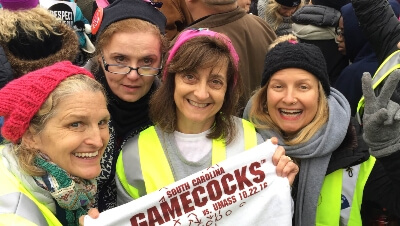
Arm in arm, we walked to our houseboats in the marina. “I see a lot of water,” she exclaimed warily as we made our way down the dock to the mooring spots of our boats. To get on the boat, she had to take a large step up from the dock. I held her arm and told her she’d be OK. And she was. She settled right in on the sofa bed, where she slept with a mutual friend who arrived late that night from New York City—one of our college buddies who I had stayed close with.
I knew the sofa bed wasn’t very comfortable, and I worried that she might have complaints about it. But if she did, she never uttered one. She was bright and chipper the next day, happy as I ever remember her, as we headed off to D.C. for the march. We wore pink hats and fluorescent safety vests I’d made that read, “Can You See Me Now?”
‘I’ve never been to a protest before, I hate flying, I’m scared of boats, but this is too important to miss,’ she wrote.
Soon after arriving at the Capitol, Gigi had to go to the bathroom in a bad way, but the lines for the port-o-potties were long and we were nowhere near regular plumbing. Then she saw some shrubbery and headed that way.
There was only one thing for me to do, the roommate thing to do. “I’ll go with you,” I shouted, as I followed in her wake. Then I stood strategically as she peed so no one would see her, and I came to her defense when a security woman yelled at her to leave. “Give her a break! She’s been diagnosed with a small bladder,” I lied, which made us burst into laughter.
Read More: Finding Common Ground with Women on the Other Side of the Political Divide
A Highlight of Our Lives
Our group stuck together the whole day. While other people at the march later told me they’d gotten separated in the mass of humanity, we never lost each other because the bright vests meant we were highly visible. We cheered together, chanted together, laughed together at goofy signs. We got teary together at the monumental nature of the march, the peaceful expression of so much pent-up frustration, plus so much love, hope, and good intentions. And Gigi was such a vital, impassioned part of the whole. We all agreed the day was one of the highlights of our lives.
“I’m glad I got to spend it with you,” I told her earnestly, thinking that whatever had separated us was nothing compared to the deep conviction of right and wrong that we shared at this moment in history.
There was only one thing for me to do, the roommate thing to do.
On Sunday, after she proved herself a trooper again by taking a water taxi ride through Baltimore Harbor with the rest of us, we had brunch as a group and then Gigi had to leave for the airport. We hugged one last time.
“OK, we’re solid now,” I said. My other friends hated to see her go—her impassioned Greek temperament had helped keep us fired up the whole weekend. I loved that now she was tight with them too in a way that comes from sharing such a powerfully emotional event.
The 10 of us are on a group text and as the first few weeks of the new presidency unfolded we stayed in constant contact. “Pace yourself ladies. It’s going to be a long bumpy ride,” one of my friends wrote.
“I’m so glad I have all of you,” Gigi responded, “to help me get through this.”
For bringing Gigi back in my life, I can honestly say, “Thank you, Donald Trump.”
A version of this story was originally published in February 2017.

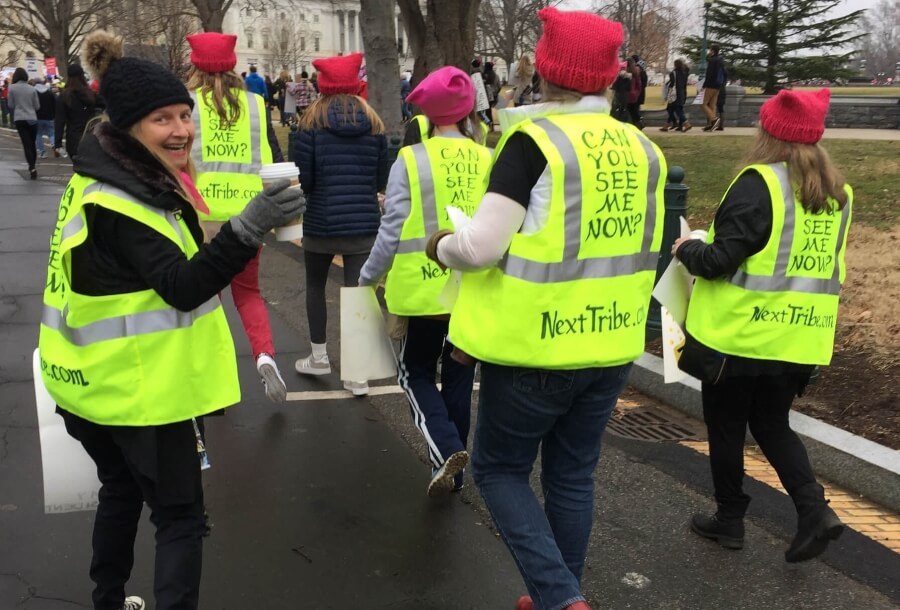





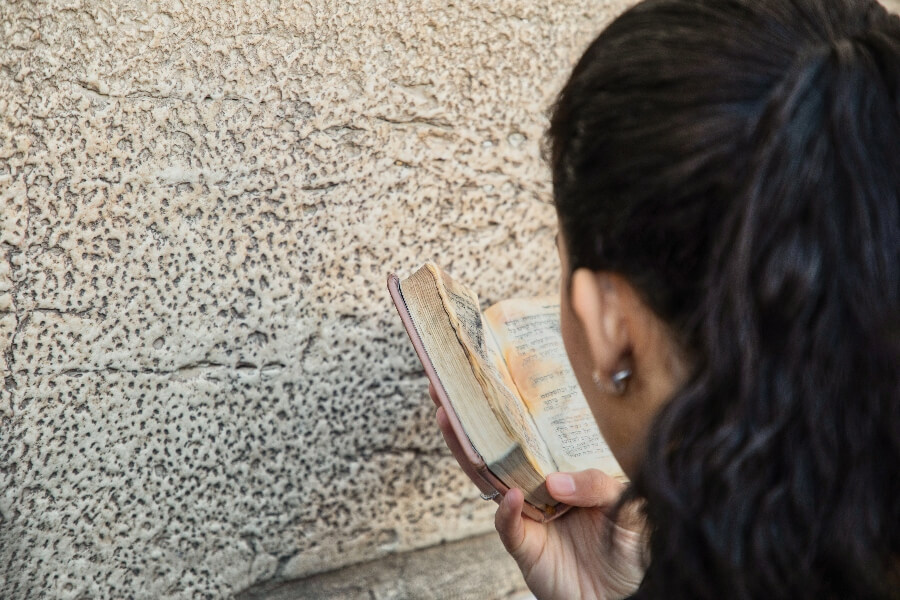
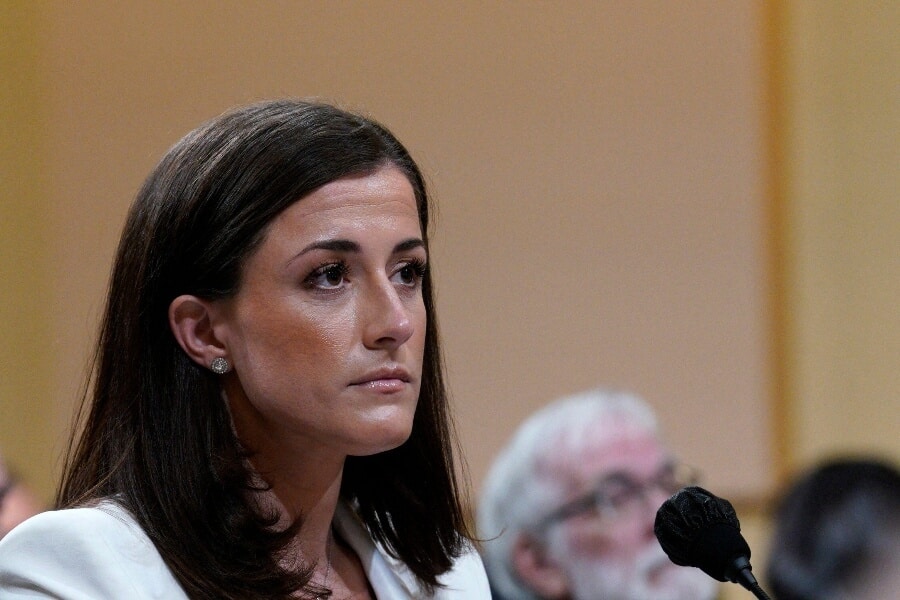
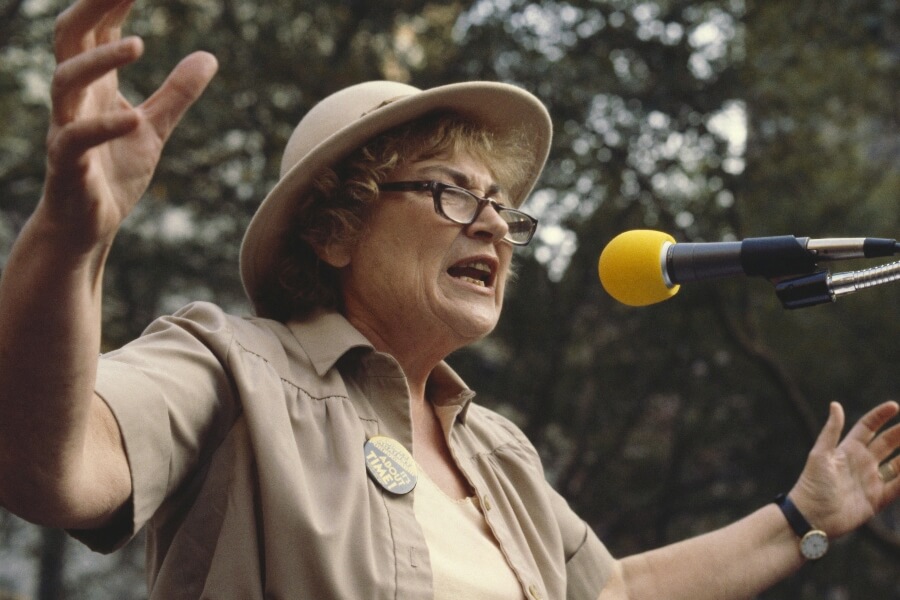


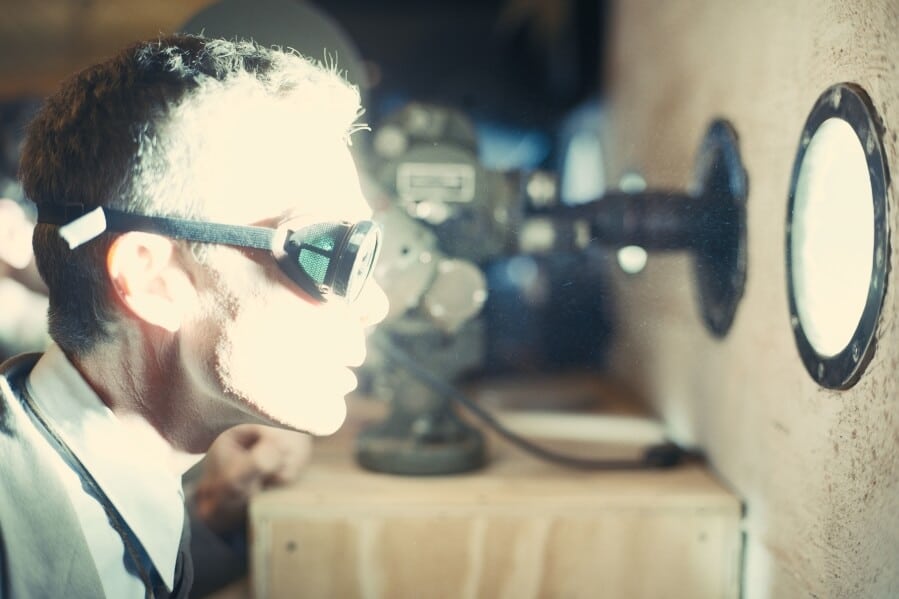
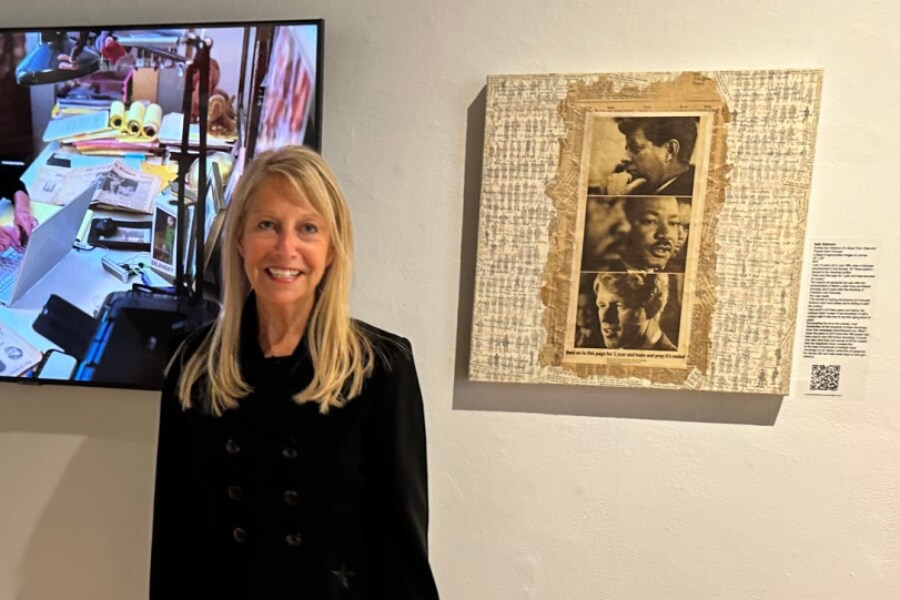
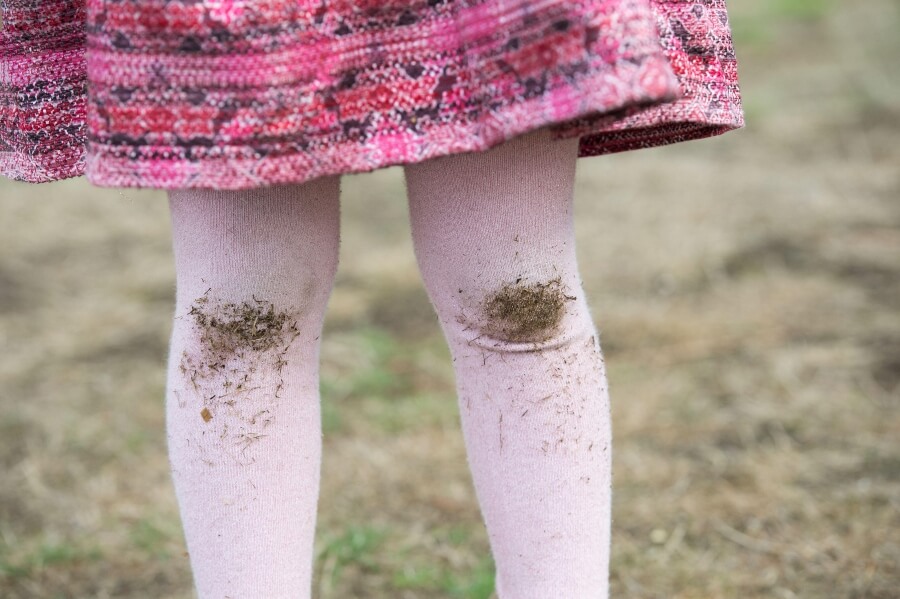





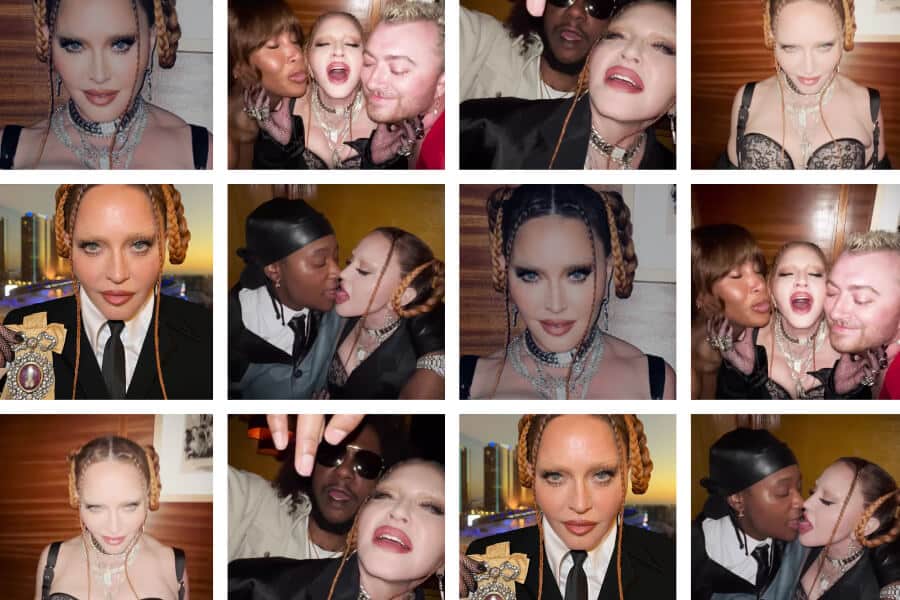
0 Comments